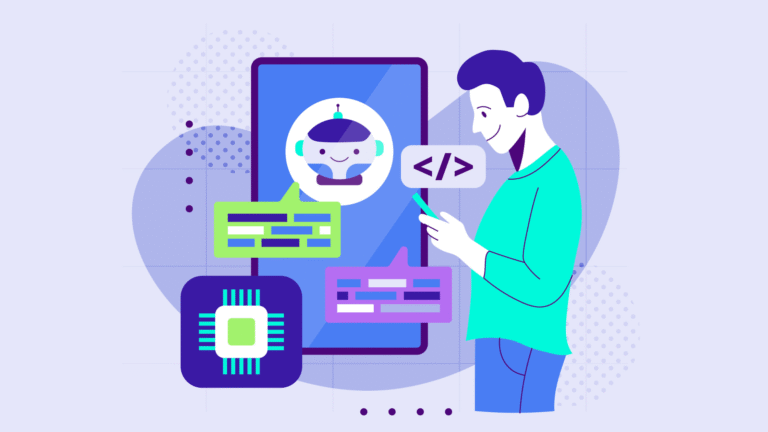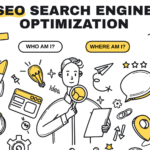Artificial Intelligence (AI) is no longer a futuristic concept—it’s here, and by 2025, it will be woven into the very fabric of our everyday lives. From smartphones and smart homes to personalized healthcare and intelligent transportation, AI is transforming how we live, work, and interact.
As we navigate this rapidly evolving digital era, let’s explore how AI is reshaping everyday technology in 2025 and what that means for consumers and businesses alike.
1. AI at Your Fingertips: The Rise of Smart Devices
In 2025, the average consumer interacts with AI more times in a day than they may realize. Smart assistants like Siri, Alexa, and Google Assistant have become exponentially more powerful. Unlike their 2020s counterparts, today’s virtual assistants understand context better, interpret emotions through voice tone, and handle complex multi-step tasks seamlessly.
For example, instead of just setting an alarm, your assistant can now analyze your calendar, sleep patterns, and local weather forecast to recommend the best time to wake up. AI in mobile devices also enables advanced features such as:
-
Real-time translation in over 100 languages
-
Adaptive battery optimization using machine learning
-
Emotion-aware communication tools for messaging and social apps
The result? Hyper-personalized user experiences that feel intuitive and human-like.
2. Smart Homes Are Now Truly Intelligent
Smart home technology has matured in 2025, thanks to robust AI integration. Devices such as thermostats, lights, cameras, and refrigerators are no longer just “connected”—they’re “aware.”
-
Thermostats now learn your comfort preferences, detect occupancy, and adjust heating and cooling dynamically.
-
Security systems analyze live video to detect unusual behavior, distinguish between pets and humans, and even predict potential break-ins using predictive algorithms.
-
Refrigerators automatically track food inventory, suggest recipes based on what’s inside, and place grocery orders as needed.
AI algorithms unify these devices into centralized home ecosystems, enabling users to enjoy seamless automation and energy-efficient living.
3. AI-Powered Healthcare at Home and Beyond
Healthcare has been revolutionized by AI, particularly in diagnostics, remote monitoring, and personalized medicine. In 2025, wearable tech like smartwatches, fitness bands, and even smart clothing will use AI to monitor health metrics in real time.
-
AI diagnoses common illnesses by analyzing voice, breath, and visual cues.
-
Predictive analytics detects heart issues, diabetes, or potential strokes long before they occur.
-
Virtual health assistants offer daily reminders, dietary advice, and mental health support.
Telemedicine platforms have integrated AI chatbots and virtual nurses to provide 24/7 care, reducing the burden on healthcare systems and improving access for remote populations.
4. AI in Transportation: Smarter, Safer, and Greener
The transport sector is another area where AI is having a profound impact. Self-driving technology, once a novelty, is now becoming mainstream. While fully autonomous vehicles are still in development, driver-assist systems in 2025 are more reliable, thanks to deep learning algorithms and 3D spatial awareness.
-
AI traffic systems manage urban traffic flow in real time, reducing congestion and emissions.
-
Predictive maintenance in electric vehicles alerts drivers to issues before they happen.
-
Smart public transit uses AI to dynamically reroute buses and trains based on demand and traffic conditions.
Additionally, ride-hailing services now use AI to predict peak hours, reduce wait times, and pool passengers more efficiently.
5. AI in Education: Personalized Learning Experiences
In 2025, AI has redefined education by enabling hyper-personalized and accessible learning environments.
-
Adaptive learning platforms use AI to assess a student’s strengths, weaknesses, and learning style, tailoring content accordingly.
-
AI tutors and chatbots provide instant feedback and support, especially for subjects like mathematics and language learning.
-
Speech recognition and natural language processing help students with disabilities access learning materials in more inclusive ways.
Even traditional classroom settings now rely on AI to track student engagement and improve teaching strategies through data analytics.
6. The Workplace Revolution: AI as a Digital Colleague
AI has become a reliable digital colleague across various industries in 2025. From automating repetitive tasks to enhancing decision-making processes, AI tools now increase productivity and efficiency at all levels.
-
AI-powered tools manage emails, schedule meetings, and summarize documents in seconds.
-
Recruitment platforms use AI to screen resumes, reduce hiring bias, and match candidates to company culture.
-
Predictive analytics assist managers in forecasting sales, customer behavior, and market trends.
AI also enhances creativity with tools that generate content, design layouts, and even compose music, augmenting human potential rather than replacing it.
7. AI in Finance: Smarter Money Management
AI has made personal finance smarter and more accessible than ever.
-
AI-powered budgeting apps analyze spending habits and suggest saving strategies.
-
Robo-advisors manage investments using real-time market data and risk profiling.
-
Fraud detection systems powered by AI identify unusual transactions within milliseconds.
From digital banks to cryptocurrency platforms, AI ensures security, enhances customer support, and delivers insights tailored to individual users.
8. AI and Entertainment: Personalization Beyond Algorithms
Streaming platforms like Netflix, Spotify, and YouTube have gone beyond recommendation engines. In 2025, AI curates fully personalized content feeds, generates customized playlists, and even helps create content.
-
AI-generated music is now a genre of its own, blending styles based on user preferences.
-
AI in gaming creates dynamic storylines, adaptive enemies, and personalized difficulty settings.
-
Virtual reality (VR) and augmented reality (AR) are now enhanced by AI, offering immersive, interactive experiences with real-time feedback.
The result is a deeply engaging, personalized entertainment experience that evolves with user behavior.
9. Ethical AI: A Growing Conversation
As AI becomes more integrated into our lives, ethical considerations have taken center stage. In 2025, there is a growing demand for:
-
Transparent algorithms that explain how decisions are made
-
Bias-free data to prevent discrimination
-
Stricter privacy regulations to safeguard personal data
Governments and tech companies are collaborating to ensure that AI remains a tool for empowerment, not exploitation.
10. What the Future Holds: A Human-AI Partnership
As we move further into 2025 and beyond, the most promising aspect of AI is its potential to work with humans rather than replace them. From enhancing creativity to solving global challenges like climate change and healthcare access, AI is not about machines taking over—it’s about amplifying what we can do together.
The focus has shifted from artificial intelligence to augmented intelligence, where AI acts as an extension of our abilities, helping us think faster, act smarter, and live better.
Final Thoughts
AI in 2025 is no longer a buzzword or a distant dream. It’s a powerful reality reshaping everyday technology in profound and often invisible ways. From the homes we live in to the cars we drive, the tools we work with, and the entertainment we consume, AI is making life more connected, efficient, and personalized.
But as with all powerful technologies, responsible development and usage are crucial. As consumers, businesses, and societies, our collective challenge is to harness the potential of AI ethically, ensuring that this revolution benefits all of humanity.



